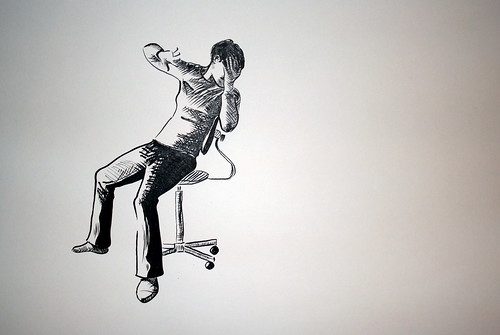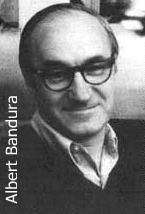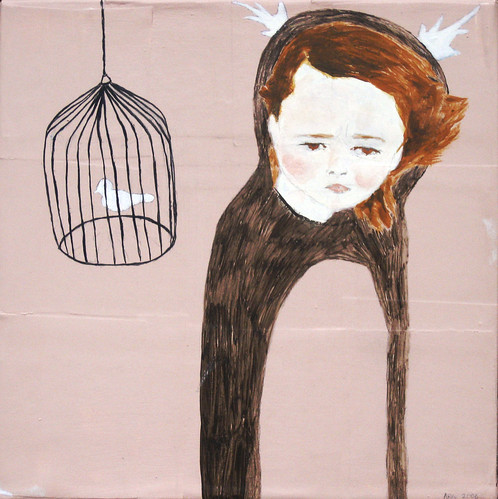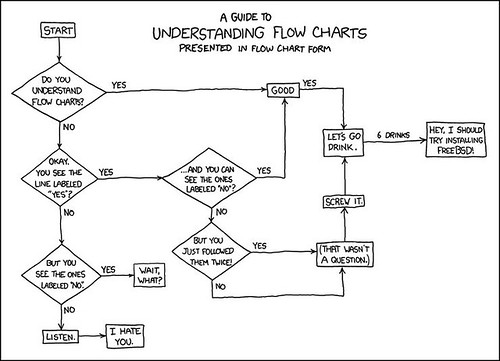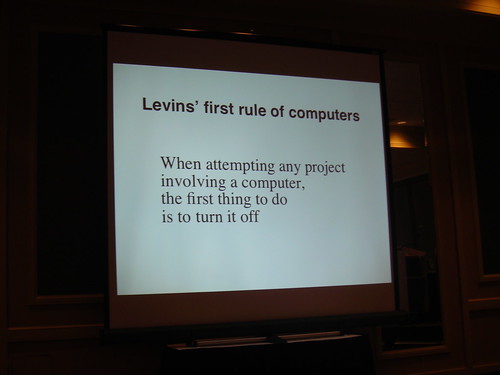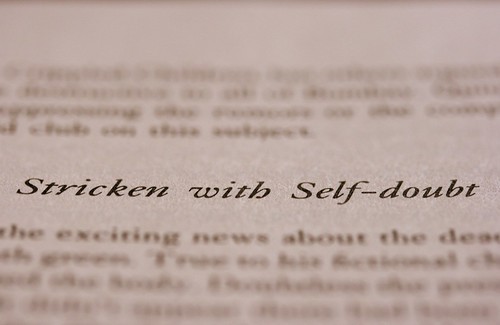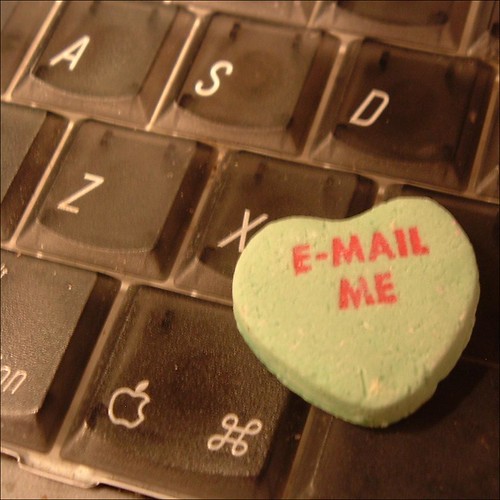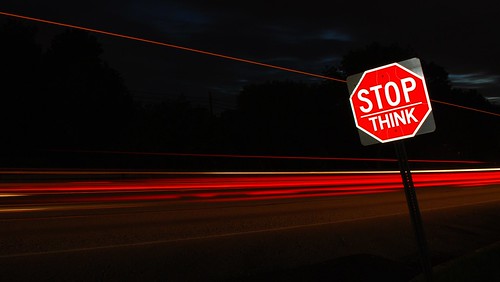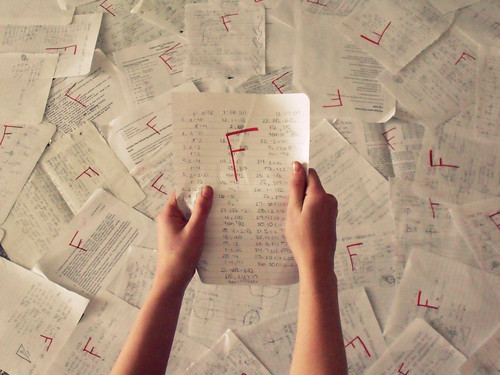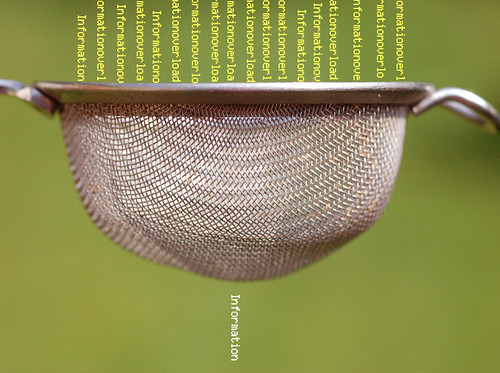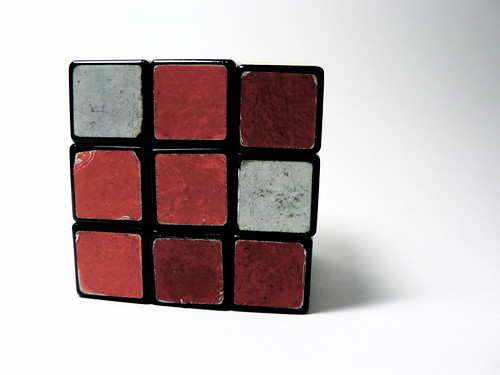
A post by Pure O Canuck got me thinking when she about her relationship OCD(ROCD) and homosexuality OCD(HOCD),
When does this horrible urge/need to find the answer end? And why does it seem like others have found the answer and I can't? It seems like others are living happily ever after. Can I say that I feel that way about my relationship at the moment? Definitely not. (Spend too much time on that and the ROCD starts up - but that's for another post.)This desire to live happily ever after is seductive for all humans, and when you have OCD, there can be a gnawing, erosive need to figure out if you actually are living happily, or whether you have made a huge mistake in who you choose to be with by compulsively analyzing or avoiding all triggers of the fears. I read lots of "coming out" stories in college(which is one of Pure O Canuck's exposures right now), and I longed for the click, the final puzzle piece going into place, the revelation or vision that these stories seemed to offer. But I am realizing that the OCD is latching onto the metaphor of "coming out" as a form of absolute certainty, which in actuality it is not, and OCD is very opportunistic and picks up on other images like being "in denial about being gay." As Pure O Canuck says,
I know that I am not going to get an absolute, certain answer to these questions. (I don't quite understand why - it seems like others have it. But I guess that's just a momentary feeling and it will come and go.)It's hard to accept that other people seem to have absolute certainty, and there's a longing to have some of that elixir, but in reality, people without OCD may simply be able to move on in spite of some uncertainty, rather than seeking to eradicate every last remnant. Others were indeed in denial about being gay because of strong cultural and religious pressure and condemnation, but eventually reached a point where they came to accept who they were, in spite of trepidation or fear, and often sound at peace, but this isn't the same thing as absolute certainty. OCD never grants peace in the long term. If I feed my OCD with figuring out, analyzing and avoidance, even if one obsession recedes, another one will appear.
My therapist likes to say, "If your feared consequence happens, you'll deal with it then. You don't need to know the answers to your OCD questions right now." That's the basic uncertainty--the women in some of these coming out stories didn't know that they would suddenly fall in love with a woman--but if they didn't have OCD, they dealt with it when it happened, not in beforehand rumination.
I did the exposure of marrying my boyfriend, my now husband, in spite of agonizing whether I was really lesbian, and might never truly be happy, and over the years have grown to love my husband more and more, but I had to deal with a burst of anxiety about whether I loved him "enough" and when our 10th anniversary came, and we planned to renew our vows, I had a panic attack about whether I really could say "until death do us part"(which totally misses the point that I already had taken that vow the first time around!!) OCD narrows our vision, and allows no possibility of grace or peace.

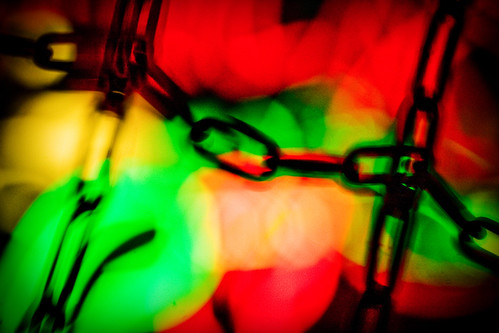

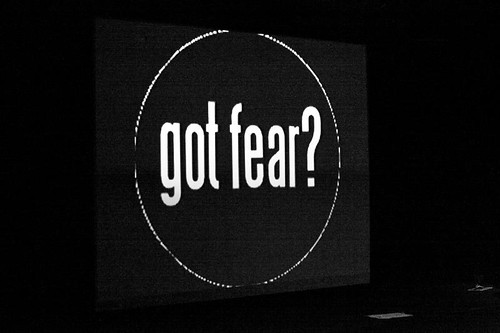
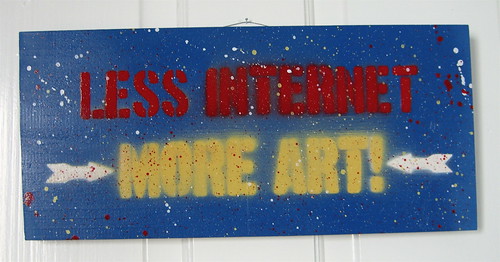

 j
j